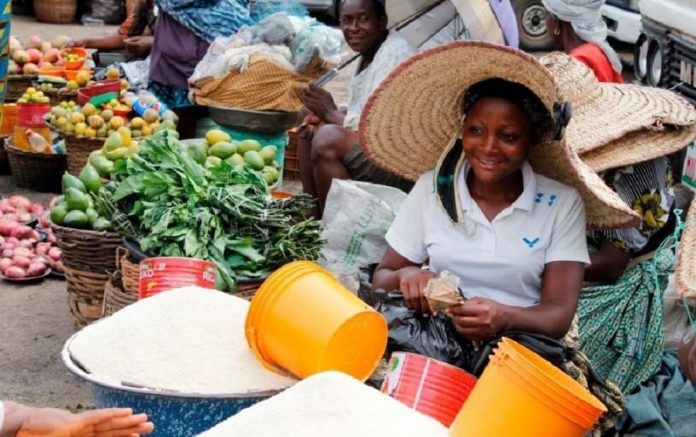Nigeria’s inflation rate rose to 22.04 percent in March 2023, up from 21.91 percent in the previous month. The inflation rate data is contained in the latest CPI report released on Saturday by the National Bureau of Statistics (NBS).
This is the third consecutive surge in the country’s inflation figure since the year began.
According to the NBS report, “the March 2023 inflation rate showed an increase of 0.13 percent points when compared to February 2023 headline inflation rate”.
On a year-on-year basis, the headline inflation rate was 6.13 percent points higher compared to the rate recorded in March 2022 which was 15.92 percent,” the data bureau said.
This shows that the headline inflation rate (year-on-year basis) increased in March 2023 when compared to the same month in the preceding year (March 2022).
“However, on a month-on-month basis, the all-items index in March 2023 was 1.86 percent, which was 0.15 percent points higher than the rate recorded in February 2023 (1.71 percent),” NBS said.
According to the report, this means that in March 2023, on average, the general price level was 0.15 percent higher relative to February 2023.
NBS also said items like food and non-alcoholic beverages contributed largely on the divisional level to the increase in the headline.
“The contributions of items on the divisional level to the increase in the headline index are food and non-alcoholic beverages (11.42 percent); housing, water, electricity, gas, and other fuel (3.69 percent),” the agency said.
“Clothing and footwear (1.69 percent); transport (1.43 percent); furnishings, household equipment and maintenance (1.11 percent); education (0.87 percent); health (0.66 percent); miscellaneous goods and services (0.37 percent); restaurant and hotels (0.27 percent); alcoholic beverage, tobacco and kola (0.24 percent); recreation and culture (0.15 percent) and communication (0.15 percent).”
Meanwhile, the NBS said food inflation in March 2023 to rose to 24.45 percent on a year-on-year basis — representing a 7.25 percent points higher compared to the rate recorded in March 2022.
The statistics body explained that the rise was caused by increases in prices of oil and fat, bread and cereals, potatoes, yam and other tubers, fish, fruits, meat, vegetables, and spirits.
On the a state profile, Sokoto, Zamfara, and Plateau residents paid less for food in the period under review, the agency noted.
“In March 2023, food inflation on a year-on-year basis was highest in Kwara (28.84 percent), Ondo (28.22 percent), and Lagos (27.92 percent),”the report further reads.
“Sokoto (18.99 percent), Zamfara (20.57 percent) and Plateau (21.38 percent) recorded the slowest rise in food inflation on a year-on-year basis.


















